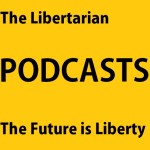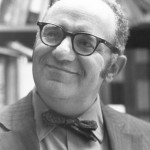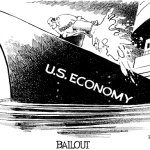Recorded on Friday 2nd August.
The Libertarian: Podcast #1

Political Action

By Dean Hyatt
I am writing this in support of political action, but you may not be aware that there are others of the libertarian wing who do not, I especially choose political action because I see the threats and weakness’s to the agorist system and am not confounded by such theories. This article will go a long way of explaining why I resigned from the Conservatives and continue on as a Liberal Democrats (or rather just explains the Tory part). Another reason I want to touch this topic is because I do not accept Rothbard’s attempt at justifying political actions because of the basis he wrote:
“Konkin’s entire theory speaks only to the interests and concerns of the marginal classes who are self-employed. The great bulk of the people are full-time wage workers; they are people with steady jobs. Konkinism has nothing whatsoever to say to these people. To adopt Konkin’s strategy, then, would on this ground alone, serve up a dead end for the libertarian movement. We cannot win if there is no possibility of speaking to the concerns of the great bulk of wage earners in this and other countries.” – Murray Rothbard
Murray Rothbard in 10 Great Quotes

The ‘Great Authors in 10 Quotes’ is an ongoing series meant to expose libertarian-leaning readership with some of the most noteworthy thinkers in the classical liberal, libertarian, and anarchist traditions. The challenge is finding material deep enough to reflect an author’s thought, while still being accessible for a brand new reader. We encourage readers to leave comments linking to other written works and videos by the author.
Murray Newton Rothbard (1926 -1995) was the single most influential figure of the post-WWII American libertarian movement. Rothbard synthesized concepts from Austrian economics, classical liberalism, individualist anarchism, and other sources to codify much of the thought underlying contemporary libertarianism. Rothbard was a student of Austrian School economist Ludwig von Mises and former associate of libertarian intellectuals such as Ayn Rand and Karl Hess. Rothbard published more than 20 works on libertarian topics ranging from economics, to history, to proposals for social activism.
Why Bailouts Hurt The Economy

Written by: Jason Lu
My inspiration to write this article comes from the recent announcement of bankruptcy in the city of Detroit. This is the first bankruptcy of a city of this scale. While many citizens may be eager for the government to do something, I am not.
Ask anyone for their solution, and it would be something like “give Detroit a couple billion dollars” because it will solve their bankruptcy problem. Unfortunately, this is similar to stuffing a napkin in an overflowing sink. It will solve the overflowing problem in the moment, but very soon, if you don’t fix the pipes, the sink will burst and even more water will be flowing out. Detroit will soon burst it’s sink if we don’t solve the root of the problem: unnecessary spending.
Detroit went from an industrialized and booming nation to a ghost town. This is not because of some social or economic phenomenon, it is because of the local and federal government’s idiocy. The auto-industry moved to other countries because of the regulations and taxes that this country burdens on them. Without this trade that Detroit was founded upon, a lot less money flowed in.
Spontaneous Emergence of Rules
In my previous article I criticised the Coasian approach to the economic analysis of law. Not only is it incompatible with libertarian philosophy, it even goes against common intuitions. Indeed, when taken seriously by judges, it may have devastating consequences for peaceful cooperation. In the present article I would like to focus attention on the process by which legal rules and institutions evolve and their justification.
What Libertarianism Is

Stephan Kinsella is an attorney in Houston, director of the Center for the Study of Innovative Freedom, and editor of Libertarian Papers. See his blog. Send him mail. See Stephan Kinsella’s article archives. This article is adapted from “What Libertarianism Is,” in Jörg Guido Hülsmann & Stephan Kinsella, eds., Property, Freedom, and Society: Essays in Honor of Hans-Hermann Hoppe.
Hans-Hermann Hoppe in 10 Great Quotes

By Eric Field
Hans-Hermann Hoppe is one of the most defining of contemporary libertarian thinkers. A graduate of the Goethe University Frankfurt, Germany and a former Marxist, Hoppe’s is best known for his rigorously logical examination of culture, human action, and the state. Hoppe has at times courted controversy for his belief that natural hierarchies are essential to human liberty. Regardless of whether or not one agrees with much of Hoppe’s statements, he has greatly improved the quality of libertarian discourse. So much so, that “Hoppean” has become a synonym for rigorously supported scholarly support for libertarianism.
Interview: Joakim Kämpe
Joakim Kämpe is editor and co-founder of the Ludwig von Mises institute in Sweden, as well the Spanish speaking Instituto Mises Hispano. He has a degree in software engineering and has also studied a master of economics under the guidance of Jesús Huerta de Soto in Madrid.